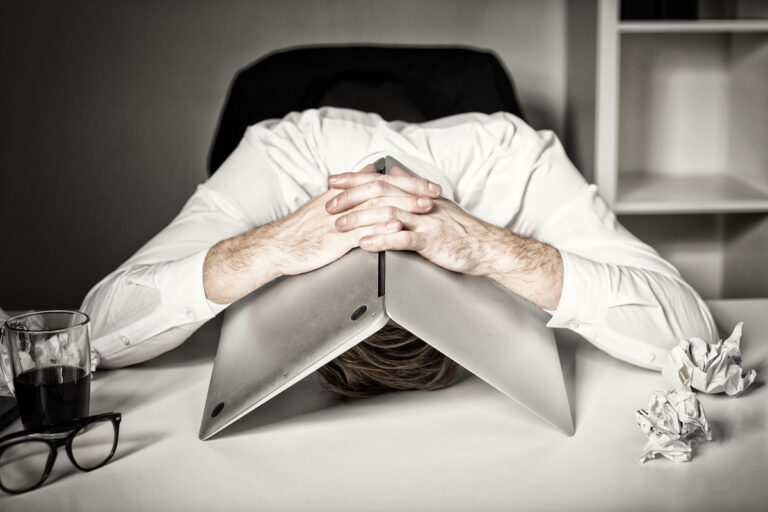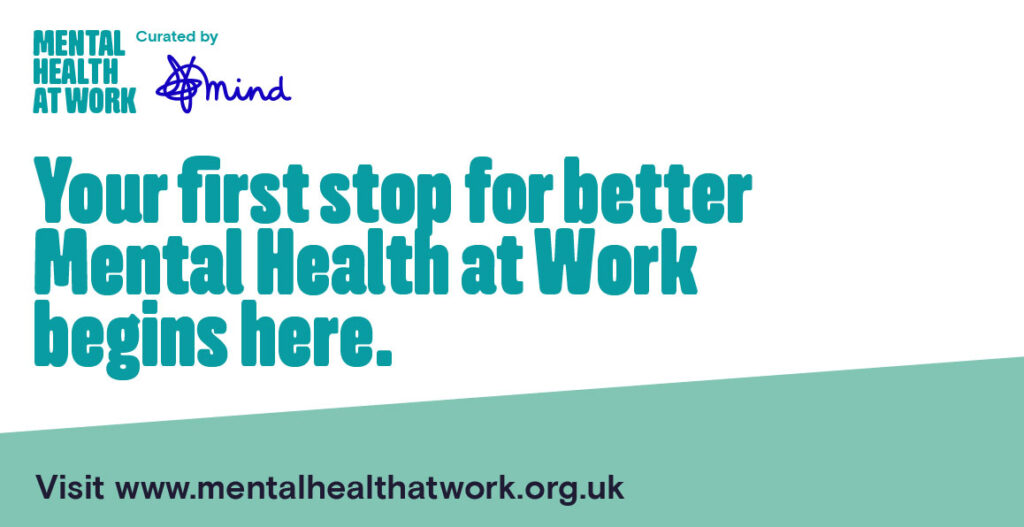Mental Health at Work has partnered with Simply Business to support the UK’s self-employed with their mental health and wellbeing. Together we surveyed more than 700 small business owners to understand their challenges. Now we want to start a conversation and break the stigma surrounding mental health at work
Let’s be honest, many of us left full time employment in the hope to escape the “rat race”, and discover the promise of greater freedom, mental wellbeing, and fulfilment, that we heard was promised to us if we “became our own boss”.
But the truth is, being self-employed brings its own unique pressures that can feel like living on a rollercoaster. After all we are financially reliant on ourselves; can become overwhelmed with all the ideas we have, and we are genuinely passionate about the work we do.
It’s easy to feel like you’re constantly on the go
As an award-winning entrepreneur and burnout expert, I am not exempt from these experiences. At times I have cried tears of frustration, or felt the elation of partnering with a new client, and at other times, been so inspired by a new idea, it has left me tired before I even begin working on them!
Being a business owner, it’s easy to feel like you’re constantly on the go, naturally leaving you feeling exhausted and overwhelmed. Therefore, it is important to understand the difference between being rundown and burnt out.

Although they have similar presentations, such as exhaustion, lack of motivation, irritability, reduced productivity, and physical symptoms such as headaches or stomach problems, they have very different causes, which means they need a different approach to prevent and recover from it.
Being run down typically refers to a temporary feeling of physical or mental fatigue that arises from overexertion, working intensely, or living under high pressure. Despite feeling tired, achy, or moody, you can still function relatively well in your day-to-day life and at work.
Burnout is caused by chronic stress
In contrast, burnout is caused by chronic stress exposure resulting in a state of emotional, physical, and mental exhaustion, rendering you unable to perform even the simplest of tasks.
Stress is just like fire. It can be productive and constructive when well-managed, or disastrous and catastrophic when mis-managed – or worse, if we don’t know it’s occurring.

If stress is like fire, then burnout is like a housefire where the levels of stress we experience becomes so overwhelming we lose your sense of control and purpose.
The only way to deal with a housefire is to put out the fire.
The fires that need to be put out are the unnecessary stress in our lives, categorised as a stressful situation that do not bring us closer to the personal/professional goals we want to achieve and experience!
Ask yourself these two questions
A quick way to identify if you are “rundown” or “burnt out” is to ask yourself these two questions:
- Do you feel like you have control over your life?
- Do you have a clear sense of purpose and vision for your life?
If you can answer “yes” to both questions, you are most likely “rundown’ not “burnt out”.
If you answer “no” to one of the questions, it’s important to begin creating a solution to prevent burnout.
If you answer “no” to both questions, it’s important to begin creating a plan to recover from burnout.

Recovering from being rundown requires rest, just like a laptop that needs charging. We too need to allow ourselves to recharge through both passive and inactive rest that meets the needs of the eight dimensions of wellness, including physical, intellectual, emotional, social, environmental, spiritual, financial, and occupational wellness.
Here are some tips to help you recover if you’re already feeling run down:
- Take breaks: It’s essential to take regular breaks throughout the day to give your mind and body a chance to rest and recharge from being rundown.
- Set boundaries: Establish clear boundaries with your clients or customers around work hours, deadlines, and expectations so you don’t overwork yourself and so you are not always rundown.
Don’t be afraid to reach out to friends, family, or a mental health professional
- Prioritise self-care: Make time for exercise, healthy eating, and other activities that help you to relax and recharge so you can recover from being rundown.
- Seek support: Don’t be afraid to reach out to friends, family, or a mental health professional for support if you’re struggling or begin to delegate work to your team or freelance experts.
- Practice mindfulness: Incorporate mindfulness techniques, such as deep breathing, meditation, or yoga, into your daily routine to help reduce stress and improve mental clarity.

Rest does not prevent Burnout
Recovering from burnout requires a more structured approach that involves seeking professional help in changing your lifestyle, and creating a career that aligns with your values and personal goals.
In conclusion, being self-employed can feel like living on a rollercoaster. It can be demanding, overwhelming, and exhausting.
However, by understanding the difference between being rundown and burnt out; periodically conducting an audit of your life and career to identify any potential fires; and incorporating a robust “rundown recovery” plan as part of our lifestyles, we can create a sustainable and fulfilling life as an entrepreneur or business owner.
Visit Simply Business to find out more about the challenges facing the self-employed and small business owners, along with practical resources to support you.


